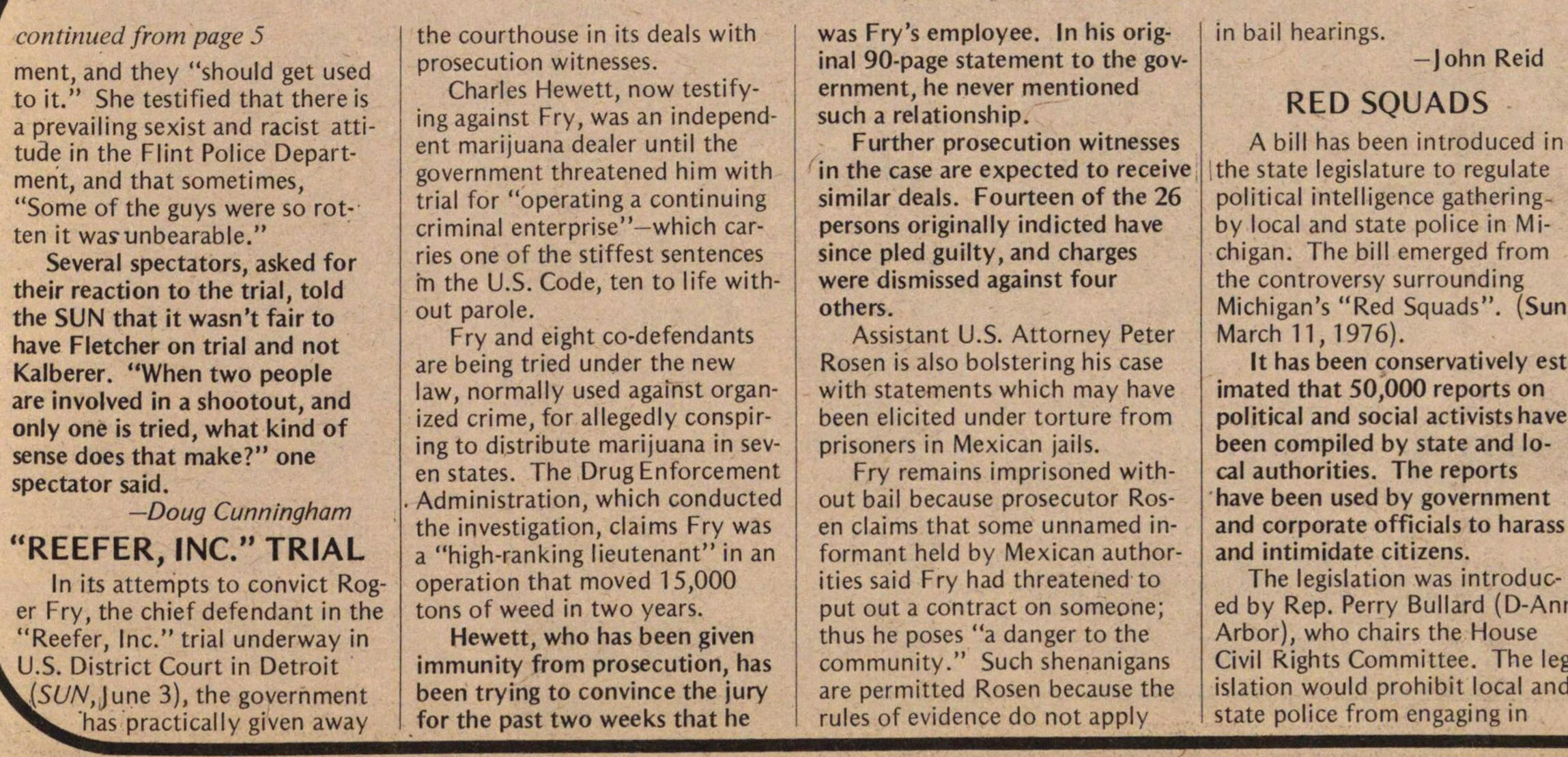"reefer, Inc." Trial

"REEFER, INC." TRIAL
In its attempts to convict Roger Fry, the chief defendant in the "Reefer, Inc." trial underway in U.S. District Court in Detroit (SUN, June 3), the government has practically given away the courthouse in its deals with prosecution witnesses.
Charles Hewett, now testifying against Fry, was an independent marijuana dealer until the government threatened him with trial for "operating a continuing criminal enterprise" -- which carries one of the stiffest sentences in the U.S. Code, ten to life without parole.
Fry and eight co-defendants are being tried under the new law, normally used against organized crime, for allegedly conspiring to distribute marijuana in even states. The Drug Enforcement Administration, which conducted the investigation, claims Fry was a "high-ranking lieutenant" in an operation that moved 15,000 tons of weed in two years.
Hewett, who has been given immunity from prosecution, has been trying to convince the jury for the past two weeks that he was Fry's employee. In his original 90-page statement to the government, he never mentioned such a relationship.
Further prosecution witnesses in the case are expected to receive similar deals. Fourteen of the 26 persons originally indicted have since pled guilty, and charges were dismissed against four others.
Assistant U.S. Attorney Peter Rosen is also bolstering his case with statements which may have been elicited under torture from prisoners in Mexican jails.
Fry remains imprisoned without bail because prosecutor Rosen claims that some unnamed informant held by Mexican authorities said Fry had threatened to put out a contract on someone; thus he poses "a danger to the community." Such shenanigans are permitted Rosen because the rules of evidence do not apply in bail hearings.
- John Reid
RED SQUADS
A bill has been introduced in the state legislature to regulate political intelligence gathering by local and state police in Michigan. The bill emerged from the controversy surrounding Michigan's "Red Squads." (SUN, March 11, 1976)
It has been conservatively estimated that 50,000 reports on political and social activists have been compiled by the state and local authorities. The reports have been used by government and corporate officials to harass and intimidate citizens.
The legislation was introduced by Rep. Perry Bullar (D-Ann Arbor), who chairs the House Civil Rights Committee. The legislation would prohibit local and state police from engaging in
Article
Subjects
Freeing John Sinclair
Old News
Ann Arbor Sun